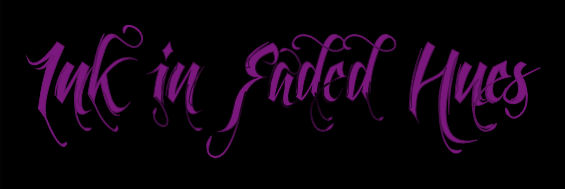I read a lot, as most of us (not just writers) should. Sometimes, I wonder how a traditionally published book ever made it past the editor’s desk, let alone the printers. Other times, I’m left in awe, and that child-like voice inside me whispers that it wants to write like that when we grow up. Often, on Amazon, I cringe. (Admit it. You know you do, too!)
Writers are often vain. We tend to think the world revolves around us. That’s what happens when you spend countless hours dwelling in a place where a fictional variation of it does. After all, we hold the power of life and death in our hands—entire civilizations rise and fall beneath our fingertips, and if we stop typing, time becomes suspended. It’s easy to see how one can become slightly delusional. But what I don’t get is where the illusion of perfection creeps in. (Is that before or after Act 2?)
It doesn’t matter how fantastic your book is. Even the greatest story ever written doesn’t stand a chance with poor editing. Sadly, most of the mistakes out there are sloppy, careless ones that would have been caught in the most basic of read-throughs.
Now before you start whining that not all of us can afford a professional editor, let me say that I get that. I really do. A proofreader alone can cost anywhere from $20-35 dollars an hour. An editor goes for $65 or more. But, even those with limited budgets could (and should) pass their work along to a trusted source for close scrutiny. This could be a friend, a family member, members of your critique groups or online communities . . . the possibilities are endless. Use them!
We pour over our work for hours. Our eyes are keyed into our brains. It is far too easy to skim over a word and insert what we know should be there. Our minds know what we meant, and therefore send incorrect cues to our eyes. ‘The’ seems to fit, even if we meant ‘there.’ The plot might have holes, but again, we know what we were trying to convey, so our mind fills in the blanks. Our readers do not have the benefit of seeing the movies that play out in our heads. If we fail to describe character motivation, they will never understand what drives our cast, even if it is crystal clear to us. Tense shifts, inconsistent POVs, missing apostrophes, incorrect homonyms, and shoddy punctuation usage will all throw your valued reader into a frustrated tailspin.
Just as we all have our strengths, we also have our weaknesses.
It doesn’t matter if you are sending your novel to agent #1 on the top 100 list, or going at it your own on Kindle. Brown & Little to Amazon alike, it is still your job, your duty, to make sure you put out the absolute best product that you can. This is your vision, your name . . . and believe me, your reputation is at stake.
Before you scoff, and tell yourself that you are infallible, let me ask you this: Would you send your child off to school without the supplies he or she needed to succeed? Would you show up to an important job interview wearing a stained wife-beater and cut-off jeans? If the answer is no, think about these small revelations and let them sink in. (If the answer is yes, please call me up the next time you have an interview. This is something I would really like to see!)
The truth is, your book is no different. It’s a tough world out there. Do what you can to make sure it succeeds. At the very least, please give it a fighting chance. It, and you, deserve it.
~Best wishes and lots of love~
Adriana



